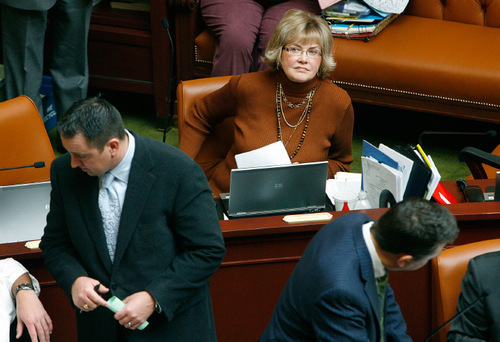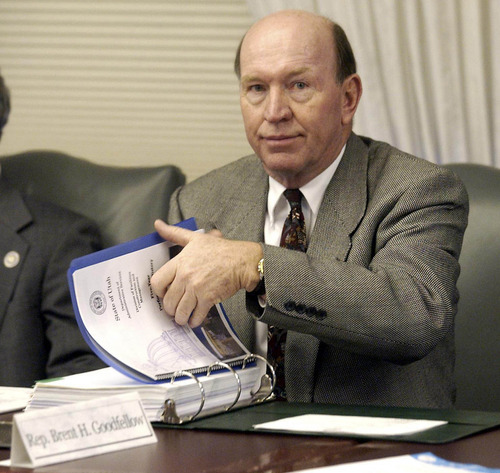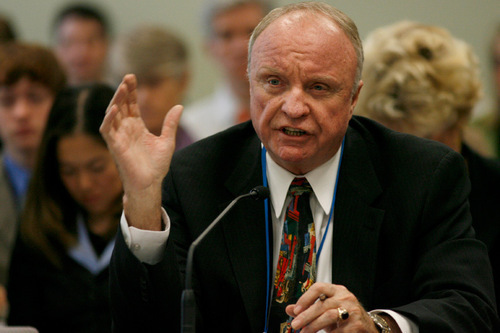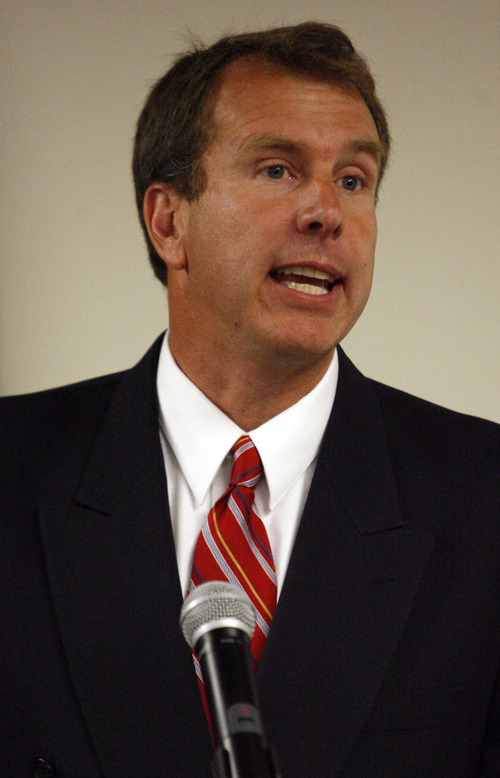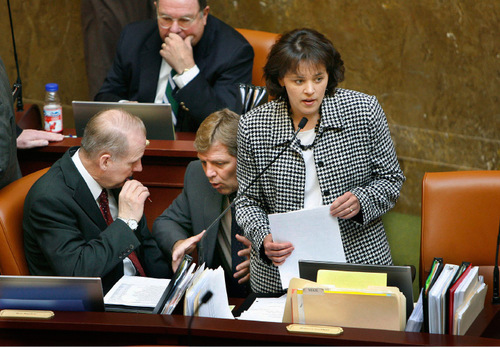This is an archived article that was published on sltrib.com in 2010, and information in the article may be outdated. It is provided only for personal research purposes and may not be reprinted.
On its face, the $101 million in federal assistance seemed like a godsend to Utah students.
Conservatives in the Legislature clearly considered it a grievous usurpation of states' rights. But in Wednesday's special session, they took the money.
That indignant acceptance sets the stage for a 2011 general session that could be even more vituperative about the feds than this year's, when proposed message bills flew like confetti: gun rights, global-warming-is-a-farce, kill-the-wolves, opt-out-of-federal-health-care-reform and so many more.
The point of the special session was to formalize our receipt of the money, about half of which will go to help districts hire teachers, restore canceled school days and other elements sacrificed in truly tough financial times. The other half covers diminished tax collections.
But House Speaker-elect Rebecca Lockhart decided that while we'd take the money, we'd give the feds a piece of our mind. They expropriated our rights, she said, and given the power of this particular purse to the governor or local governmental entities (read public schools).
Lawmakers did acknowledge that the state education fund faces a $50 million shortfall. But many argued that taking the federal cash not only would cede power, it would drive the economy into hyperinflation and bankrupt our children, grandchildren and great-grandchildren.
In his just-say-no moment, Rep. Christopher Herrod, R-Provo, said, "We have to stop taking federal money. The nation is filled with people saying enough is enough.
"The question I ask," he said, "If not us, then whom? If not now, then when? We must stand up to the federal government."
Sounds pretty tea party to me, although it's not surprising. In an October Tribune poll, 46 percent of the respondents said they support the movement's agenda. Among Republicans, that figure rose to 67 percent.
But there were some who argued that taking federal money for education makes sense.
"I haven't heard the words that are most important — children and students," said Rep. Sheryl Allen, R-Bountiful. Not only would the money restore school and teacher preparation days, it could make a difference in how Utah students compete on the international stage.
Others mentioned the fact that Utah takes federal money all the time.
"Look at state government departments and agencies, there are pages and pages of [federal] grants we apply for," said outgoing Sen. Brent Goodfellow, a West Valley City Democrat and educator.
"Look at the University [of Utah] and Utah State," which constantly apply for federal and foundation money, he said, as does USTAR, the Utah Science Technology and Research Initiative.
"We don't approve those grants," Goodfellow said. "This is not different from what we do to make our state great."
But others, including Sens. Chris Buttars and Howard Stephenson, insisted that accepting the money would trash states' rights.
"Unless the states are willing to rise up and claim their authority, federalism is dead," Stephenson said.
And Buttars now-famously tore pages from the Utah Constitution. Those pages, he said, dictate that the Legislature must approve appropriations.
Well, it's a sure bet that we can expect much the same behavior when the 2011 Legislature convenes in January. And I certainly understand the frustration of a stagnant economy, a grid-locked Congress and the fact that far too many Americans are jobless.
But I don't buy that the feds are strangling the life out of the states. We may have conflicting interests, but that's the nature of shared governance. Pretty much all of us pay state and federal taxes, and the schools stay open, roads are maintained and most sick people — but, sadly, not all — get medical care.
Bottom line? We're Utahns, and we're also Americans.
Peg McEntee is a columnist. Reach her at pegmcentee@sltrib.com.


